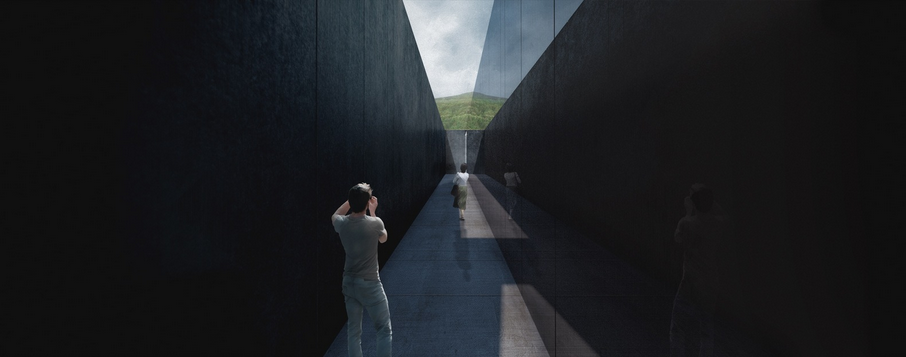A team of architects from Norway and Australia has designed an educational centre for a Unesco world heritage site in South Hobart, Tasmania.
Australian firms Liminal Architecture and Rush Wright Associates worked with Norwegian architect Snøhetta and the Port Arthur Historic Sites Management Authority on the project, which aims to tell some of the stories of the 6,000 female convicts who passed through prison and workhouse called the Cascades Female Factory.
The site, which closed in 1856, is one of 11 Unesco convict sites in the country. Liminal says the design of the History and Interpretation Centre is influenced by dualities such as “light and dark, imprisonment and liberty, punishment and reform, threat and opportunity, horror and hope”, which is manifested in the “contained form, spatial design and integrated landscape” of the centre.
Parts of the centre will contain transparent floors, showing excavated foundations.

In Liminal Architecture’s words, the design aims to “fulfil an empowering and educational role recognising the social, cultural and political foundations laid by the convict women, building upon their legacy, connecting to the past to inform the future”.
The team has also designed what Snøhetta describes as an “empathy amphitheatre”, which will be used for forums, performances and reenactments.
Other remains of the original site will be surrounded by a wild garden, where parts of the cell building are displayed but are covered by new greenery, acting as a “metaphor for the ability of nature to heal” according to Snøhetta.
Images courtesy of Liminal Architecture/Brick Visual






